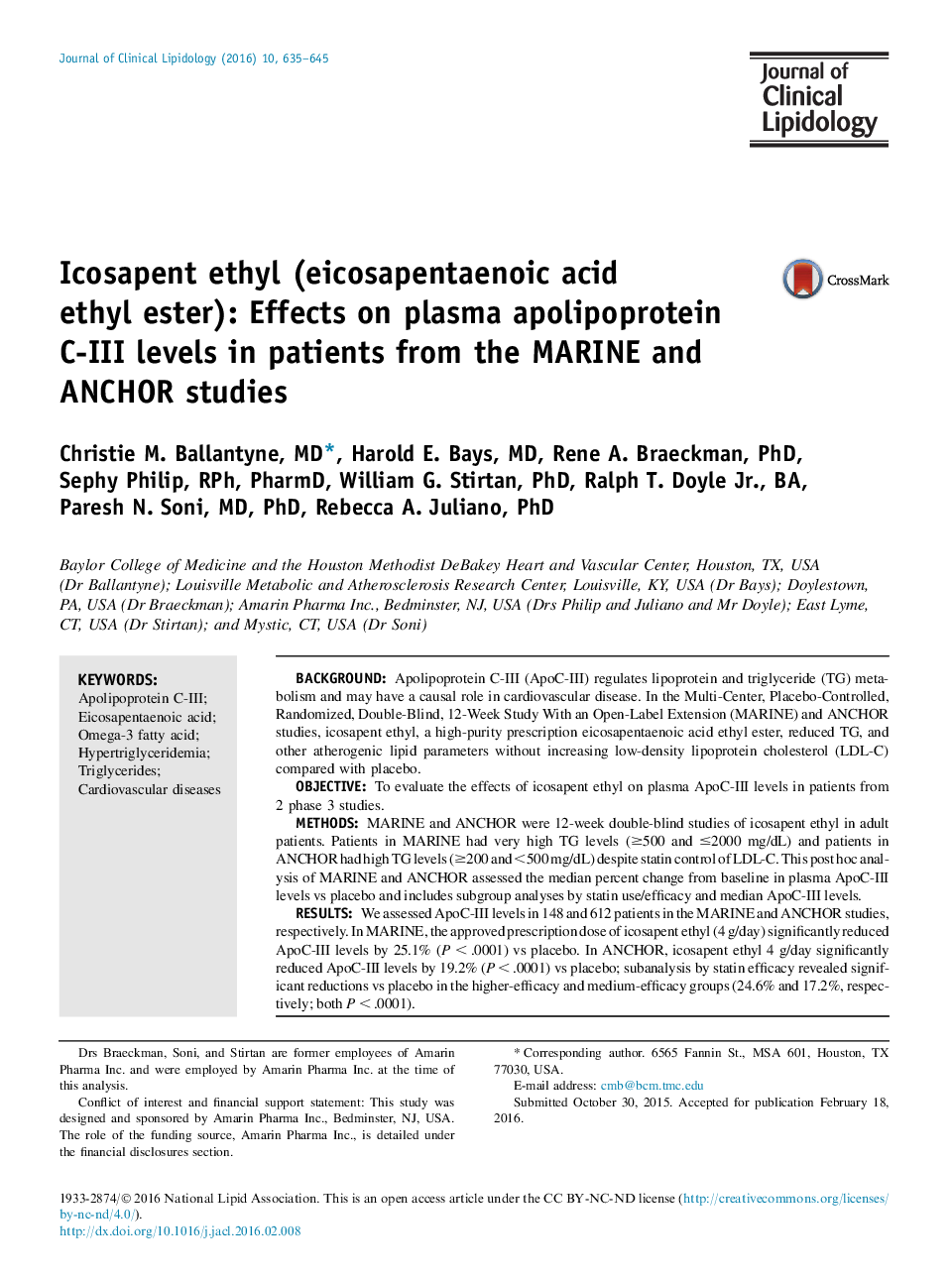| Article ID | Journal | Published Year | Pages | File Type |
|---|---|---|---|---|
| 5985325 | Journal of Clinical Lipidology | 2016 | 12 Pages |
â¢ApoC-III is an important regulator of lipoproteins and triglyceridesâ¢This study investigated the effects of icosapent ethyl (the ethyl ester of eicosapentaenoic acid) on ApoC-IIIâ¢Icosapent ethyl significantly reduced ApoC-III in the MARINE and ANCHOR studiesâ¢ApoC-III reductions occurred in all patients including statin-treated patientsâ¢These data extend the evidence of the effects of icosapent ethyl in patients with hypertriglyceridemia
BackgroundApolipoprotein C-III (ApoC-III) regulates lipoprotein and triglyceride (TG) metabolism and may have a causal role in cardiovascular disease. In the Multi-Center, Placebo-Controlled, Randomized, Double-Blind, 12-Week Study With an Open-Label Extension (MARINE) and ANCHOR studies, icosapent ethyl, a high-purity prescription eicosapentaenoic acid ethyl ester, reduced TG, and other atherogenic lipid parameters without increasing low-density lipoprotein cholesterol (LDL-C) compared with placebo.ObjectiveTo evaluate the effects of icosapent ethyl on plasma ApoC-III levels in patients from 2 phase 3 studies.MethodsMARINE and ANCHOR were 12-week double-blind studies of icosapent ethyl in adult patients. Patients in MARINE had very high TG levels (â¥500 and â¤2000 mg/dL) and patients in ANCHOR had high TG levels (â¥200 and <500 mg/dL) despite statin control of LDL-C. This post hoc analysis of MARINE and ANCHOR assessed the median percent change from baseline in plasma ApoC-III levels vs placebo and includes subgroup analyses by statin use/efficacy and median ApoC-III levels.ResultsWe assessed ApoC-III levels in 148 and 612 patients in the MARINE and ANCHOR studies, respectively. In MARINE, the approved prescription dose of icosapent ethyl (4 g/day) significantly reduced ApoC-III levels by 25.1% (P < .0001) vs placebo. In ANCHOR, icosapent ethyl 4 g/day significantly reduced ApoC-III levels by 19.2% (P < .0001) vs placebo; subanalysis by statin efficacy revealed significant reductions vs placebo in the higher-efficacy and medium-efficacy groups (24.6% and 17.2%, respectively; both P < .0001).ConclusionIcosapent ethyl 4 g/day significantly reduced plasma ApoC-III levels in patients with elevated TGs from the MARINE and ANCHOR studies.
